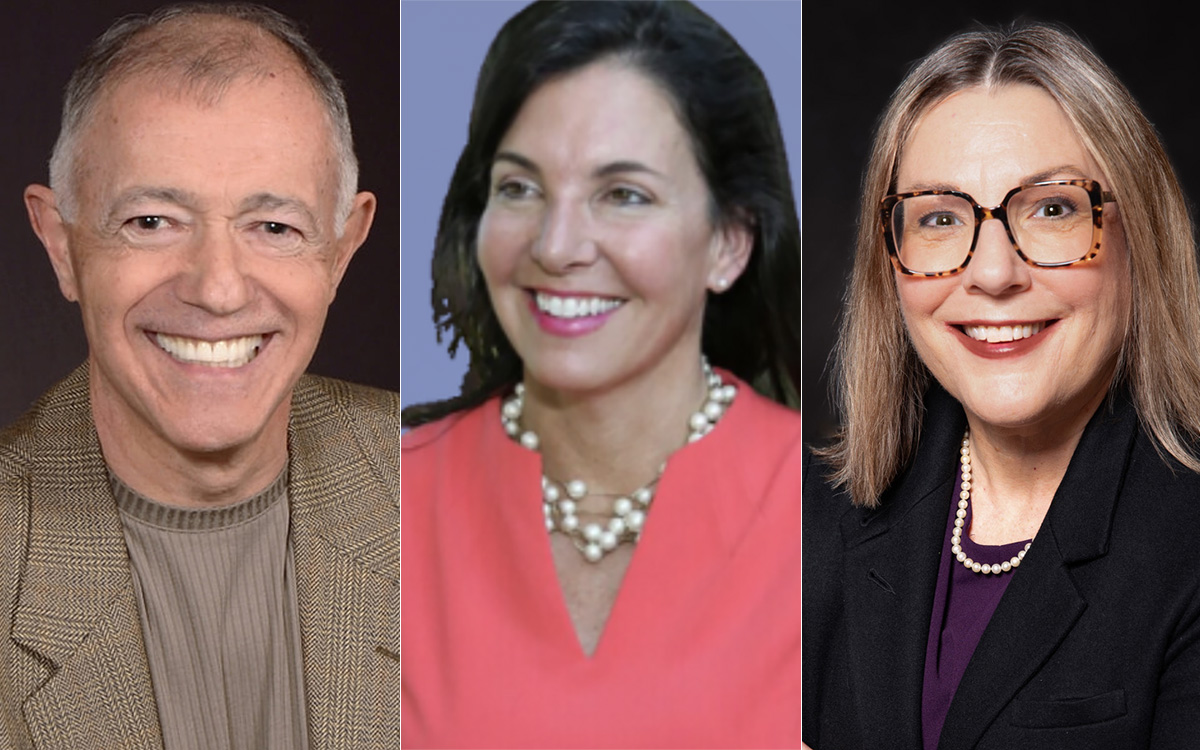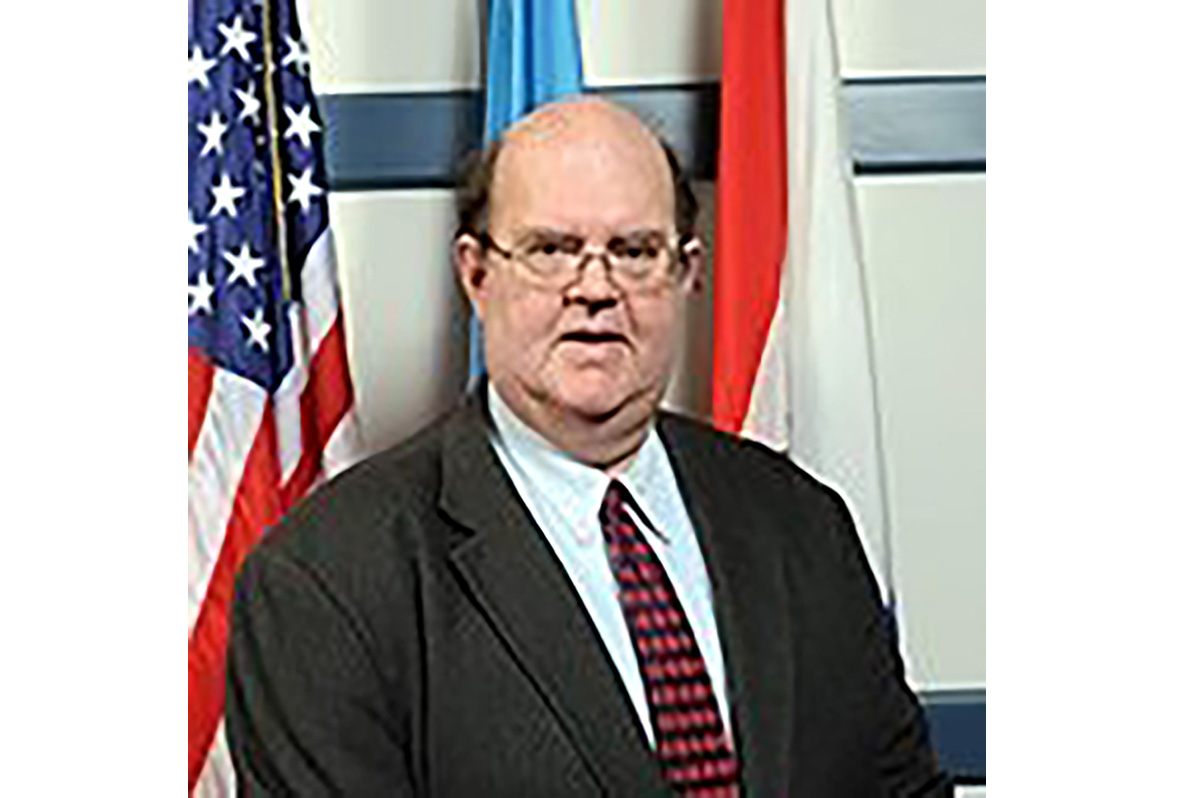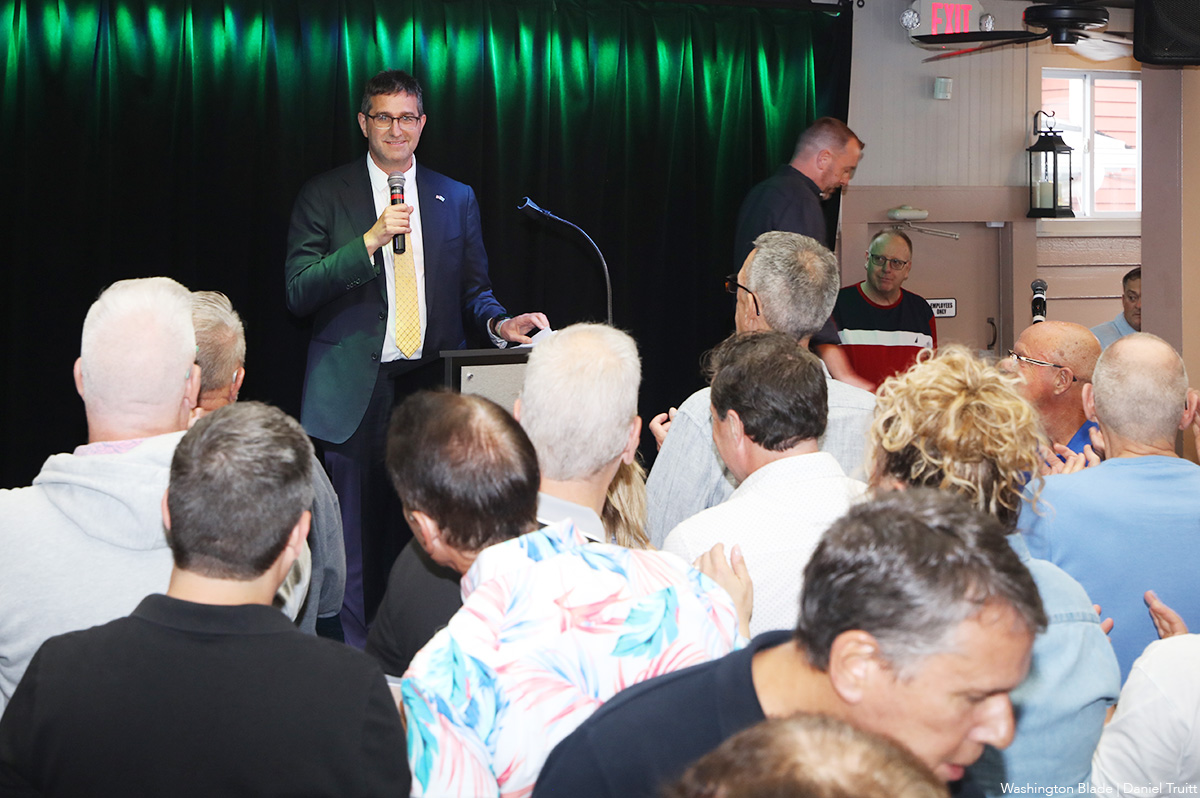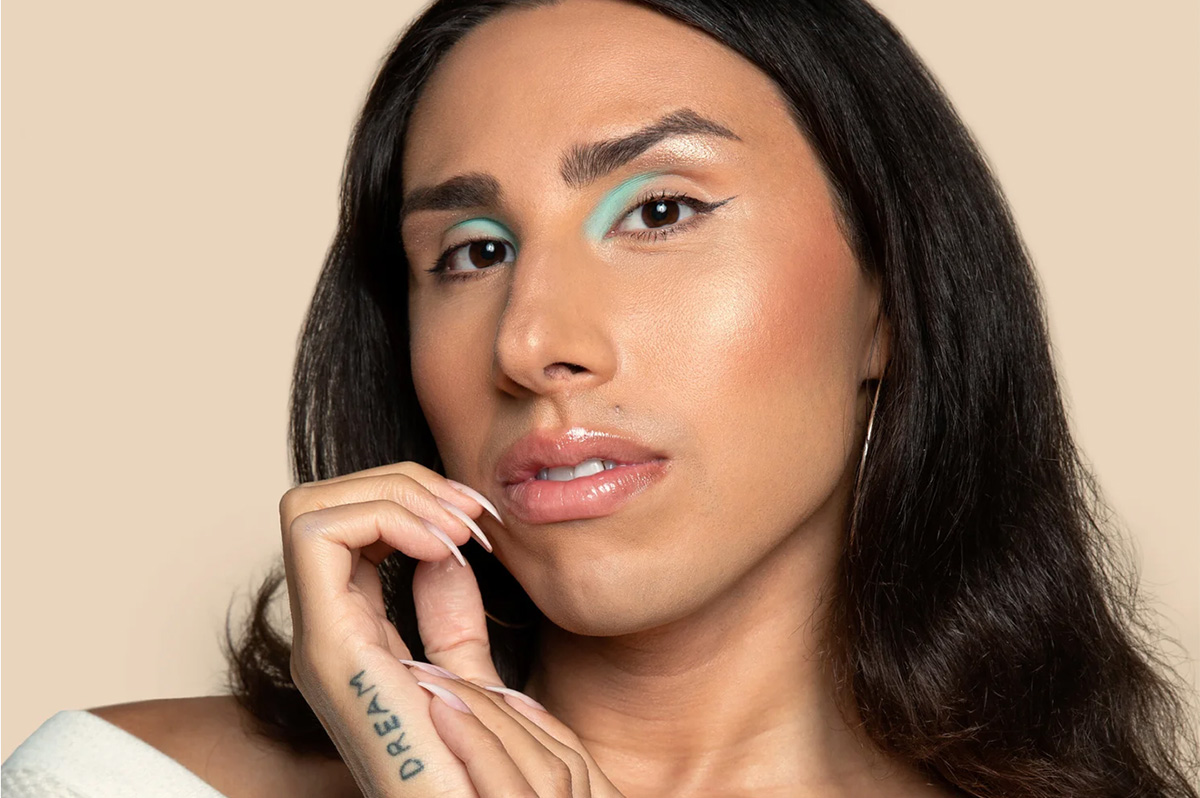Delaware
An embarrassment of riches in Delaware’s District 14 House race
Gay, lesbian candidates and an ally competing in Sept. 10 primary

As summer draws to a close, attention is increasingly focused on the upcoming primary and general elections.
In Delaware’s 14th District of the state House of Representatives, which includes Rehoboth Beach, Dewey Beach, and southern Lewes, three candidates are running to replace state Rep. Pete Schwartzkopf, a longtime LGBTQ ally.
Kathy McGuiness, Claire Snyder-Hall, and Marty Rendon are all hoping to win the seat of the former speaker of the House, who announced he would not run for reelection after 20 years in office.
It’s an embarrassment of riches for the local LGBTQ community. Of the three running for the seat, two — Claire Snyder-Hall and Marty Rendon — identify as members of the LGBTQ community. McGuiness is a strong LGBTQ ally.
Snyder-Hall, a lesbian, has a long history in the 14th District and in politics. Drawing from her leadership at the Delaware office of Common Cause, a national organization dedicated to protecting and strengthening democracy, and her 20 years as a political science professor at George Mason University, she has extensive experience in politics.
“I’m representing the district, but I’m also representing our whole community,” Snyder-Hall said in an interview with the Washington Blade. “The LGBTQ+ community is so large — it’s not just Rehoboth Beach proper, which is one-mile square, or even unincorporated Rehoboth. We’re spreading out into western Sussex, going south. A lot of people don’t have any representation in the General Assembly because they have, I’ll say it, Republicans, representing them. I see myself as representing the entire community.”
Snyder-Hall said she has spent her entire life fighting for this community.
“I’ve spent decades working on LGBTQ+ rights,” she said. “My wife and I were lobby captains in Maryland for Equality Maryland before we moved to Rehoboth. I ran the phone bank with Chris Beagle at CAMP Rehoboth for months.”
This experience, she said, in tandem with how the current national political system is moving, is why she decided to run.
“This is the most important election of our lifetime. Choice is on the ballot. LGBTQ+ rights are on the ballot. Democracy is on the ballot, and indeed, the American Dream itself is on the ballot as we face a series of crises that are threatening our prosperity and quality of life.”
The complex community of the 14th District, Snyder-Hall explains, is diverse, and requires a representative who understands the nuanced issues of the area. Of these issues, healthcare in Delaware is a major focus of her campaign.
“Healthcare, including both reproductive healthcare and protections for gender-affirming care, are critically important across Delaware,” the former professor said. “We’re having a severe shortage of healthcare providers in eastern Sussex, and that’s something that I hear at the doorsteps all the time. I’ve knocked on thousands of doors, and it’s a common thing. We also have to make absolutely sure that reproductive choice is protected, and I favor a constitutional amendment to protect abortion, protect reproductive freedom, including abortion access.”
In addition to abortion protections, Snyder-Hall highlighted another aspect of healthcare policy she wishes to address: gender-affirming care. As states across the country begin to pass more laws restricting and regulating transgender healthcare, she is in favor of protecting the right to gender-affirming healthcare.
“We’re starting to become a state that’s receiving a lot of so-called ‘refugees’ from other states that are persecuting trans people,” she said. “I think it’s really important that we extend the protections that we already have in place for reproductive care to providers of gender-affirming care. So for a variety of reasons, healthcare is really pressing.”
Snyder-Hall added she encourages the state to pass legislation enshrining protections for the LGBTQ community.
“I would like to see a constitutional amendment that protects sexual orientation, gender identity, and expression and disability,” she said. “That’s something that was filed a couple years ago and didn’t move, but now we have a new speaker of the House, Valerie Longhurst, and she was the sponsor of that bill, so that makes me optimistic about its future.”
Marty Rendon, who is also running for the seat, highlighted protecting LGBTQ Delawareans as a major issue for his campaign. Rendon, who is gay and Mexican-American, worked in Washington for most of his career as a congressional aide and director for congressional relations for UNICEF (United Nations Children’s Fund).
Rendon remembers when Rehoboth was less welcoming of the LGBTQ community.
“I can remember when signs used to be up saying ‘Keep Rehoboth a family town’ and there were attacks on gay people, physical attacks, and there were slurs and things,” Rendon recalled. “It was not necessarily a welcoming place, but over time, thanks to the efforts of groups like CAMP Rehoboth and other groups like the Washington Blade, they helped plant the flag for us … We’re now a very viable part of the community. I think it shows you how far we’ve come, the fact that an openly gay man like me has a really good chance of winning the seat and representing everybody, not just our community, but everybody.”
Rendon added that an openly gay candidate winning the seat would be a welcome step in the right direction.
“It’s not every day that we have the opportunity to send somebody from the LGBTQ+ community to an elected position, particularly in Rehoboth Beach which has a very, very strong LGBTQ+ community,” Rendon said. “Why not send someone from our community?”
The Movement Advancement Project, which tracks more than 50 LGBTQ-related laws and policies in every state in the U.S., ranked Delaware as “Medium Overall LGBTQ Policies.” The project explains there are protections for gay couples to get married, but they are not as exhaustive as other states when it comes to other LGBTQ matters, including healthcare, adoption, and anti-bullying laws.
In addition to advocating for LGBTQ protections, Rendon also said that climate change and healthcare are his two biggest issues, as he explains they impact everyone regardless of sexuality, income, and background.
“One of the biggest issues we’re facing here as a coastal state is the effect of climate change,” Rendon began. “Right now, we’re worrying about tornadoes coming in every time there’s a hurricane alert. We worry that our shoreline is very low, and we worry about the ocean rising. We worry about our inland waterways that close. Climate issues are very, very concerning to us here, and I think everybody’s affected by that.”
His opinions on the issue of healthcare echoed Snyder-Hall’s views, and particularly highlighted accessibility in Delaware.
“The healthcare costs are important, but when I knock on doors here and I talk to people, the biggest issue is access to healthcare,” he said. “How do we, particularly, when you’re down here in southern Delaware, [get access]? Let’s say you need a specialist. Well, do you have to go to Wilmington, Philadelphia, Baltimore, D.C.? Where do you find the specialist? We need to attract specialists, but then the regular primary health care providers, the physician’s assistants, the nurses, we need more of those people, and we need to get them to come here.”
His solution, he told the Blade, is already in the works and is achievable if the work is put in. This would benefit everyone in the community, he explains, but particularly some of Sussex County’s most vulnerable (and growing) demographic — people who come to the beach to retire.
“One of the ways that a lot of folks have thought might be a part of the solution is this idea of getting a medical school here, particularly in Sussex County. And now that idea is not a pipe dream…There are people working on that, the Sussex development folks are working on it.”
“We also should think about incentives to encourage people to come to areas that are less medically served than others,” Rendon added. “We don’t want to send people to Philadelphia to school and then they stay there to pay off their medical school debts.”
Kathy McGuiness, the third candidate running for the state house seat also explained healthcare in District 14 is central to her campaign. McGuiness, who is a third-generation local resident of Rehoboth Beach, studied biology and DNA research in college, eventually going to Northeastern in Boston for a degree in pharmacy. After getting her degree, she returned to Rehoboth, started her family, and “bought an old dying pharmacy.”
McGuiness eventually turned to local government after working in medicine for 30 years. She was a City of Rehoboth Commissioner from 2000-2012 and in 2014-2018. This experience, she explained, allowed her to see the issues in her community up close and ways to address them.
“I think the most pressing issues are bringing the resources to the 14th District,” she said. “If I’m speaking for the 14th District, we need money here for infrastructure, for transportation. We were an underserved area in the healthcare world 30 years ago, and now we’re still underserved even more so actually. We’re federally recognized as being underserved. We don’t have enough healthcare professionals. We’re in a crisis. As a pharmacist, I see that firsthand.”
“I see a lot of folks that move here without an advocate. “‘[Delaware] has low taxes. Let’s go retire,’ and they’re still having to go back to New York or New Jersey or Maryland or Virginia to see their doctors because they can’t get an appointment here.”
Rep. Pete Schwartzkopf, the incumbent, endorsed McGuiness. Schwartzkopf has a long history of supporting LGBTQ issues despite not being a part of the community himself. McGuiness told the Blade this is why he chose to endorse her campaign.
“I think that’s why Pete has endorsed me, because he knows I’m aligned with his thinking. He knows that I will continue the good work and champion and be supportive of the LGBTQ community, and that that includes the trans youth and gender identity, you name it, I am there as a supporter, and I will be a fierce advocate. I will continue to champion or co-champion, or assist those who are bringing forth good legislation for our protections.”
Rendon says his independence is why he is the best fit for the job.
“At this point in my life, I’m retired,” Rendon said. “It’s my full job. I don’t have anything to distract me. I don’t have any special interests. I’m kind of dangerous because nobody controls me. No PAC controls me. No special interest. I’m not doing this for my law firm, my insurance company or my real estate, none of that stuff. I’m just doing this to serve.”
Snyder-Hall emphasizes that having experience within the community is what will make her a good representative. She pointed out that sometimes people don’t agree when writing laws, but that’s where the work starts.
“There’s no shortcut when you’re trying to pass legislation. You have to try to reason with people. You try to appeal to their humanity. You try to appeal to their hearts — like when we did the marriage equality fight. Try to appeal to reason, to people’s hearts, to their humanity, and to their interests.”
The primary election is Sept. 10. For more information about the election visit elections.delaware.gov and for information on each candidate you can visit their websites at: mcguinessfordelaware.com, martyrendon.com, and clairesnyderhall.com.
Delaware
Delaware’s first openly gay elected official dies at 66
John Brady remembered as dedicated public servant

John Brady, the first openly gay elected official in Delaware, passed away in his home on Aug. 10 at age 66 after battling a long illness.
Brady was a deputy attorney general and was elected to three Sussex County offices: register in chancery, recorder of deeds, and clerk of the peace.
While clerk of the peace, Brady performed the first legal same-sex marriages in the state starting in July 2013. He told a local radio station just last week that he performed more than 400 marriages in his four-year term.
“John married my husband and me on the beach in Rehoboth 11 years ago,” said Washington Blade editor Kevin Naff. “He took great time and care in crafting our nuptials. It was a beautiful moment we will never forget. John was a pioneer for the LGBTQ community in Delaware, a dedicated public servant, and a gentleman. He will be missed.”
The day before he passed away on Aug. 9, former Speaker of the House Pete Schwartzkopf and former Lt. Gov. Bethany Hall-Long presented Brady with Delaware’s highest civilian honor for individuals who meet a high standard for community service, the Order of the First State.
Brady retired in 2024 after 32 years as a member of the Delaware Bar and 16 as a state employee. He was also active in the Eagle Scouts, working as a Scout leader and professional scouter. He received the Founder’s Award in 2023, one of the highest honors.
“Delaware mourns the passing of John Brady, a true public servant, trailblazer, and dear friend to many,” Gov. Matt Meyer wrote in a statement on Aug 11. “From his dedication to justice and service through the law to the barriers he broke as Delaware’s first openly gay elected official, John fought with compassion to improve our state and touched countless lives in the process. Lauren’s and my prayers are with John’s family and friends, as we all mourn his passing and celebrate his extraordinary life.”
Delaware
Del. att’y gen’l among plaintiffs suing Trump over access to care for trans youth
Coalition of states filed motion last week

A coalition of more than a dozen states, including Delaware, filed a lawsuit on Aug. 1 to block the Trump administration’s efforts to restrict access to medically necessary care for transgender youth.
Filed in federal court in Massachusetts, the lawsuit challenges Executive Order 14187 from January, in which President Donald Trump refers to gender-affirming care such as puberty blockers, hormone therapy, and surgeries as “mutilation.” It declares that the policy of the United States will be to “not fund, sponsor, promote, assist, or support the so-called ‘transition’ of a child from one sex to another, and it will rigorously enforce all laws that prohibit or limit these destructive and life-altering procedures.”
The suit argues that the EO violates the Administrative Procedure Act (APA) and the Tenth Amendment by asserting federal overreach into state-regulated medical and healthcare decisions.
“It becomes clearer every day that there simply is no bottom to this administration’s cruelty,” said Attorney General Kathy Jennings in a press release. “With his agenda failing and his popularity plummeting, the president is turning to time-tested tactics of demagogues: turning vulnerable people into scapegoats, obsessing over their private lives, and intruding on medical decisions. These stunts make kids into political props and do nothing to help Americans. They are despicable, dangerous, and illegal.”
Gov. Matt Meyer recently signed an executive order making Delaware a shield state for providers of gender-affirming care. It prohibits state agencies from cooperating with investigations, subpoenas, or legal actions by other states against individuals or providers involved in care that is legal in Delaware.
According to the press release, providers in some states have begun to reduce or eliminate services due to federal actions. Nemours Children’s Hospital in Delaware is no longer providing gender-affirming care to new patients.
Medical experts and nearly every major national medical association endorses and supports the availability of gender-affirming care for transgender young people.
“Empirical evidence has demonstrated that trans and nonbinary gender identities are normal variations of human identity and expression,” the American Medical Association said in 2021.
Plaintiffs include the attorneys general of California, Connecticut, D.C., Hawaii, Illinois, Maine, Massachusetts, Maryland, Michigan, Nevada, New Jersey, New Mexico, New York, Rhode Island, and Wisconsin, and the governor of Pennsylvania.
Delaware
Intersex actor, advocate River Gallo attending screening event in Delaware
Afternoon includes screening of ‘Every Body’ and Q&A

Intersex actor and advocate River Gallo will attend a screening of their film “Every Body,” followed by a Q&A in Wilmington, Del. this Saturday.
River Gallo is a Salvadoran-American filmmaker, actor, writer, model, and intersex rights activist from New Jersey. They wrote, directed and starred in the 2024 film “Ponyboi,” the first film to feature an openly intersex actor playing an intersex person. Intersex refers to individuals who are born with reproductive or sexual anatomy that doesn’t fit the typical definitions of male or female.
The movie that will be shown at Theatre N in Wilmington on July 26 at 4 p.m., “Every Body,” documents the lives of three intersex people, including Gallo. Following the film, Gallo will engage in a Q&A to discuss their life as the child of immigrant parents, activism, and film career. The event is hosted by Orgullo Delaware and the Delaware Sexuality and Gender Collective. ACLU Delaware and InterAct are partners in the event.
Noah Duckett co-founded Orgullo Delaware in 2019 with his mom, Julissa Coriano, to provide resources for Latino LGBTQ Delawareans and their families.
Duckett said that a lot of times, intersex people are left out of conversations surrounding the LGBTQ community. He hopes to pack the house for this event and emphasize how special it is that Gallo will be there in-person to connect with the audience about their work.
“I’m really hoping that people will be able to gain more of an understanding of what it must be like to navigate the world as an intersex person,” he said.
Mike Brickner, executive director of the ACLU of Delaware, seconded that the intersex community typically does not get as much spotlight within the LGBTQ umbrella.
“I hope that there are members of the intersex community that do come, that they also feel seen and acknowledged,” he said. “There’s often so few spaces for people to talk about that community and to really share about their experiences, so I do hope that visibility brings some level of comfort to folks.”
InterAct is an organization dedicated to the rights of intersex youth. It was initially founded with the goal of bringing legal action against the practice of non-consensual surgeries on intersex infants, according to Maddie Moran, the director of communications.
Moran said intersex people have historically been victimized and targeted by the government, by medical institutions, and by legal institutions. They said the average politician can’t even define intersex.
“Many of the average people in society don’t know that intersex people exist, and don’t understand that sex is not as strict as an XX and XY binary. It’s so much more than that,” they said.
Moran said they came out publicly as intersex before working with InterAct, but suddenly didn’t feel so alone after joining. They said that visibility is more critical now than ever and Gallo is just one of the people stepping up to be that visibility in the intersex movement.
“To intersex young people out there, you’re really not alone,” Moran said. “There are so many people who share your experiences, who share similar stories to yours, and regardless of what you’ve been told, there are many, many people out there like you.”
Brickner has come to the conclusion that the only way to get through the country’s current moment is through real and authentic solidarity.
“We have to acknowledge other people’s identities,” he said. “We have to have events like this that acculturate people to those identities, and that’s how we really create understanding and true, authentic solidarity with our broader community, is if people understand one another and see their lived experiences.”
-

 Baltimore5 days ago
Baltimore5 days ago‘Heated Rivalry’ fandom exposes LGBTQ divide in Baltimore
-

 Real Estate5 days ago
Real Estate5 days agoHome is where the heart is
-

 District of Columbia5 days ago
District of Columbia5 days agoDeon Jones speaks about D.C. Department of Corrections bias lawsuit settlement
-

 European Union5 days ago
European Union5 days agoEuropean Parliament resolution backs ‘full recognition of trans women as women’




















